Biden nominates Judge Ketanji Brown Jackson to be first Black woman on Supreme Court
He introduced his historic choice at a White House ceremony Friday.
President Joe Biden on Friday nominated Judge Ketanji Brown Jackson for the U.S. Supreme Court, elevating an African American woman for the first time to a seat on the high court bench.
At a formal White House ceremony Friday afternoon, Biden said, "it is my honor to introduce to the country a daughter of former public school teachers, a proven consensus builder, an accomplished lawyer, a distinguished jurist, one of the most -- on one of the nation's most prestigious courts."
"For too long our government, our courts haven't looked like America," he said. "And I believe it is time that we have a court that reflects the full talents and greatness of our nation with a nominee of extraordinary qualifications."
Jackson, in turn, said she was "truly humbled" by "the extraordinary honor" and gave credit to "the grace of God" and her parents for bringing her to this historic moment.
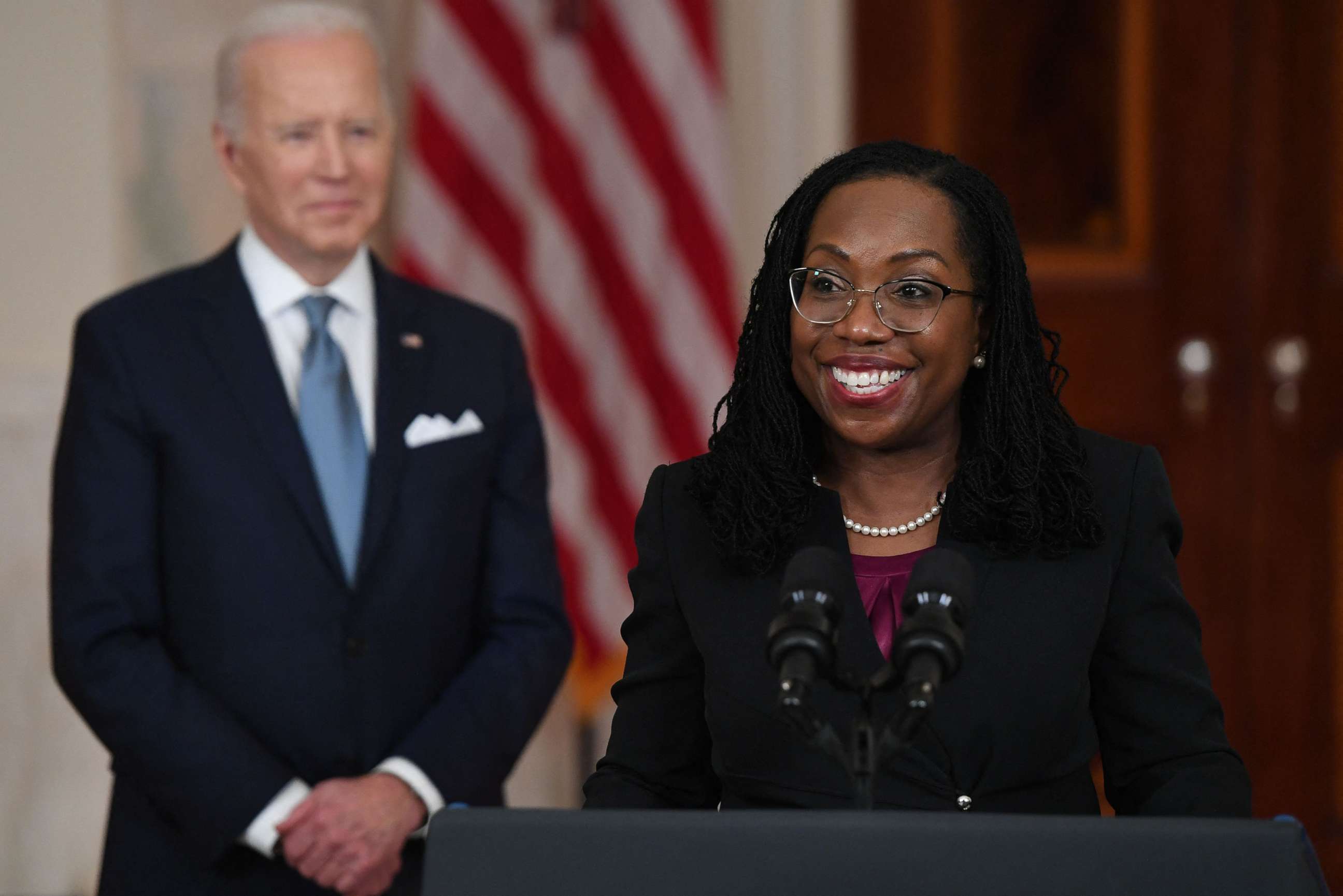
At age 51, Jackson currently sits on the U.S. Court of Appeals for the D.C. Circuit to which she was named by Biden and confirmed by the Senate last year with Republican support. The president called Jackson late Thursday to inform her of the decision, a source familiar with the conversation said.
Her nomination fulfills a promise Biden made during the 2020 presidential campaign ahead of the South Carolina primary when he relied heavily on support from the state's Black voters.
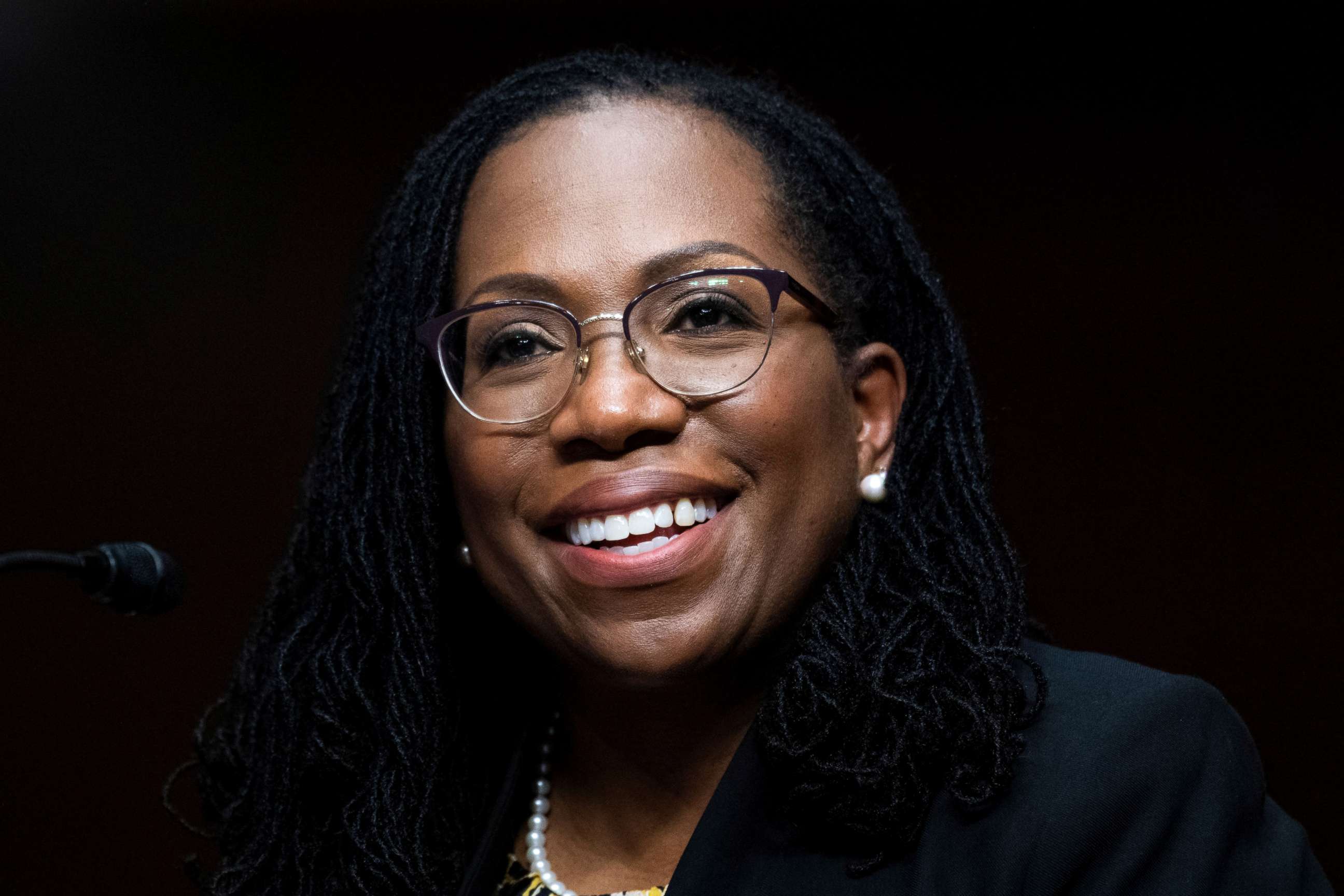
It's also the first opportunity for Biden, a former chairman of the Senate Judiciary Committee, to help shape a Court that has grown sharply more conservative in recent years, even if his appointment will not alter the current ideological balance.
Jackson, a former clerk to retiring Justice Stephen Breyer, has more than eight years experience on the federal bench, following a path through the judiciary traveled by many nominees before her.
All but four justices appointed in the last 50 years have come from a federal appeals court, including three current justices – Brett Kavanaugh, John Roberts and Clarence Thomas – from the D.C. Circuit.
Born in D.C. but raised in Miami, Jackson comes from an elite legal pedigree as a graduate of Harvard Law School but also has experience representing everyday Americans in the legal system as a federal public defender.
"Public service is a core value in my family," Judge Jackson testified last year.
She would be the first federal public defender to serve on the U.S. Supreme Court and the first justice since Thurgood Marshall to have criminal defense experience.
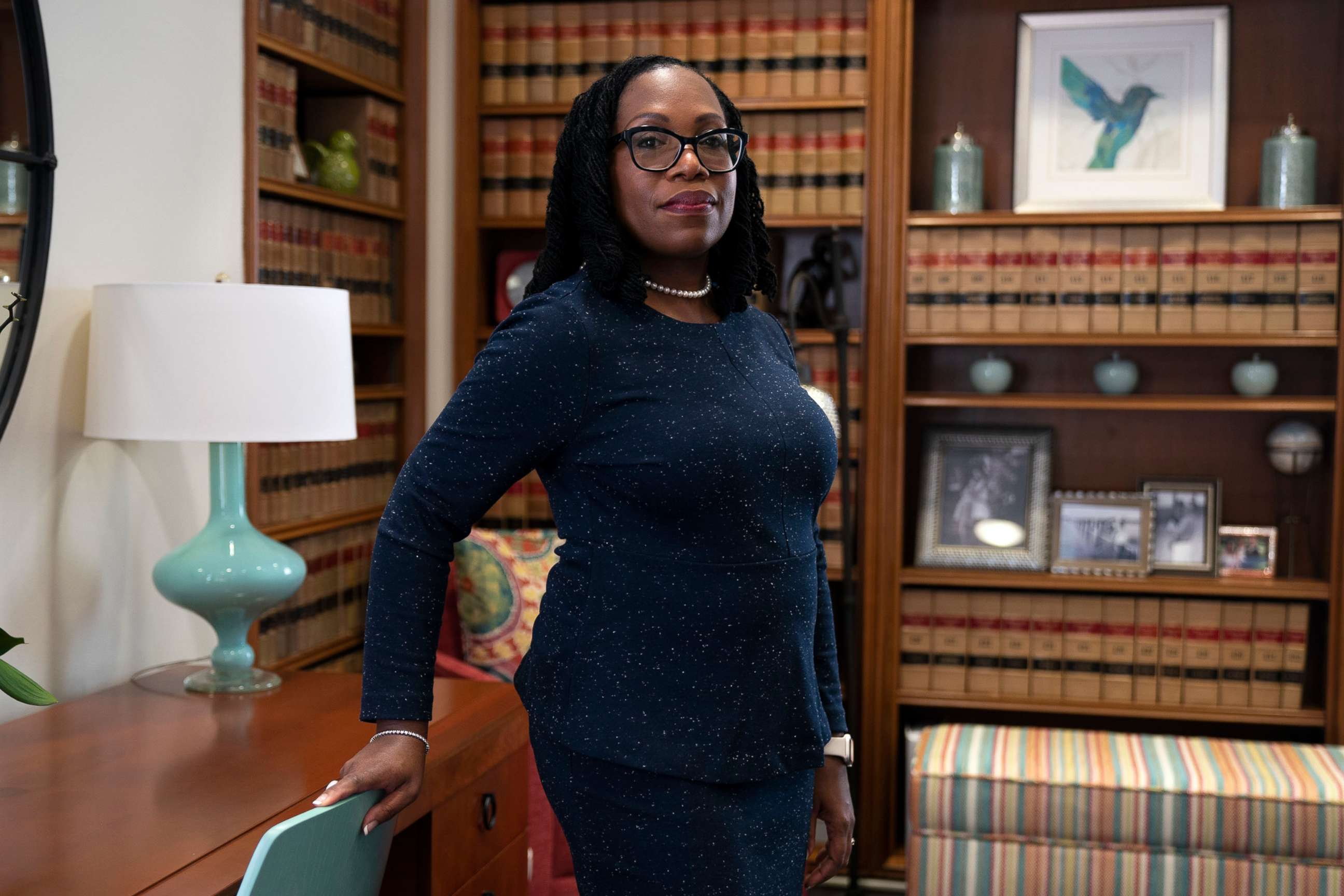
Jackson has been vetted and confirmed by the Senate three times – twice for appointments to the federal bench, a third time for a seat on the U.S. Sentencing Commission. Not since Justice Clarence Thomas was nominated in 1991 has a Supreme Court candidate been scrutinized by the Senate as many times.
"I think she's qualified for the job. She has a different philosophy than I do, but it's been that way the whole time," Republican Sen. Lindsey Graham said of Jackson last year. He was one of three GOP Senators, including Sens. Susan Collins and Lisa Murkowski, who voted to confirm Jackson to the U.S. Court of Appeals.
President Biden has long admired, respected and helped elevate Jackson, sources say. It was the Obama-Biden administration that first appointed her to the federal bench in 2013. Last year, Biden met one-on-one with Jackson at the White House before nominating her to the D.C. Circuit. The two met again in recent days, sources said.
The president is impressed by her "experience in roles at all levels of the justice system, her character and her legal brilliance," White House spokesman Andrew Bates said this month.
Jackson has won praise from grassroots progressive, civil rights and legal groups, particularly for her work as vice chair of the bipartisan U.S. Sentencing Commission between 2010 and 2014, when she played a key role in major criminal justice reforms.
Jackson joined a unanimous vote to reduce federal sentencing guidelines for some nonviolent drug offenders and make the changes retroactive – moves backed by members of both parties.
"In my view, that of a civil rights lawyer and advocate who is committed to bringing justice, respect, and fairness to this nation, and particularly to my community, that woman is Judge Ketanji Brown Jackson," civil rights attorney Ben Crump told ABC News.
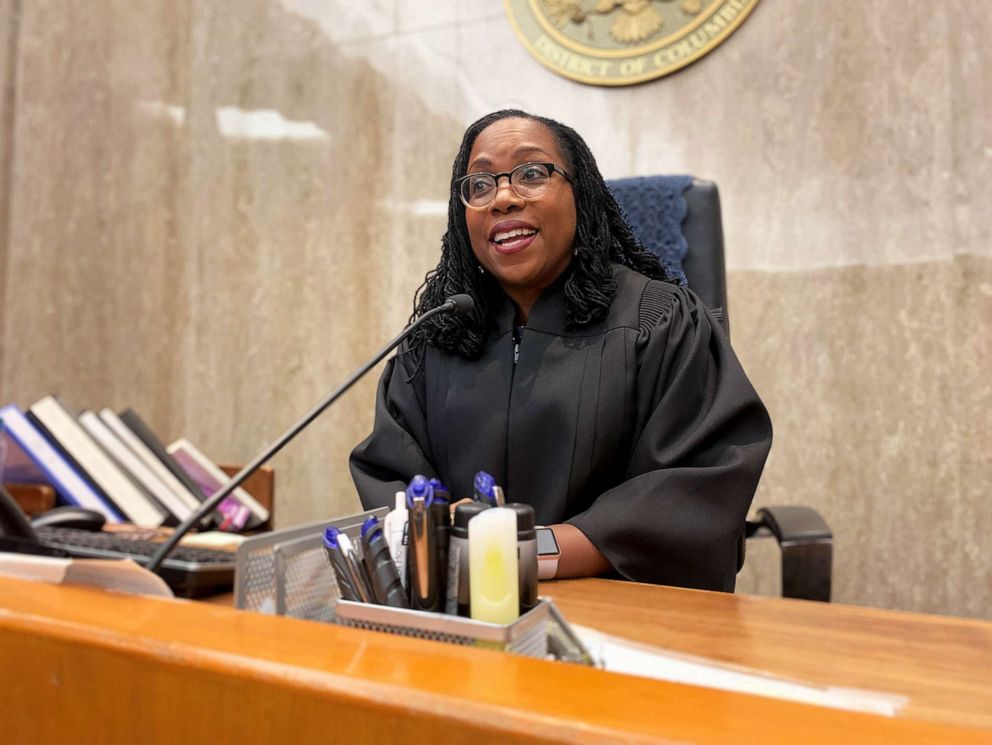
On the bench, her jurisprudence has widely been considered mainstream and measured, legal scholars say. She authored 600 opinions while on the U.S. District Court for D.C.; only 12 were reversed, according to data compiled by the Alliance for Justice, a progressive legal advocacy group.
One of her most high-profile decisions came in the 2019 case of former White House Counsel Don McGahn, who was contesting a congressional subpoena for testimony. Then-District Court Judge Jackson wrote a 118-page ruling ordering McGahn to testify, concluding that "presidents are not kings" and could not assert universal executive privilege over former aides.
Earlier this month, Judge Jackson published her first appeals court opinion – a unanimous decision in favor of a large union of federal government workers contesting new federal labor guidelines that would have made collective bargaining more difficult. Jackson concluded the changes were "arbitrary and capricious" in violation of the Administrative Procedure Act.
Late last year, Judge Jackson joined a unanimous appeals court panel decision rejecting former President Donald Trump's attempt to shield his records from review by the congressional committee investigating the Jan. 6 insurrection. The decision recently affirmed by the U.S. Supreme Court.
Jackson's former colleagues and associates describe her approach as "Breyer-esque," qualities Biden has explicitly sought to replicate on the bench: moderate, pragmatic, and a consensus-builder.
"She believes the judiciary should be accessible and transparent," said Sanchi Khare, who clerked for Judge Jackson in 2019. "She really feels that people who come to the court or who interact with the judicial system, whether they are civil or criminal parties, that they feel heard and that the court is considering their arguments."
Rachel Barkow, an NYU law professor, former Harvard classmate of Jackson and former member of the U.S. Sentencing Commission, predicted Jackson could help "dial down the temperature" around the Court if confirmed.
"She is not someone who is a firebrand off on her own, creating and doing new things which I don't think she should be doing as a lower court judge," Barkow told ABC. "I think she absolutely on the merits should be a person who appeals to people of all political stripes."
Senate Republican Leader Mitch McConnell said this week that the nominee will be "respectfully treated and thoroughly vetted." Sen. Ted Cruz, R-Texas, said Sunday that his party will not engage in "personal slime attacks" but will scrutinize the candidate's record.
Democrats have the votes to confirm Jackson without Republican support, but President Biden has said he hopes to win over some members of the other party.
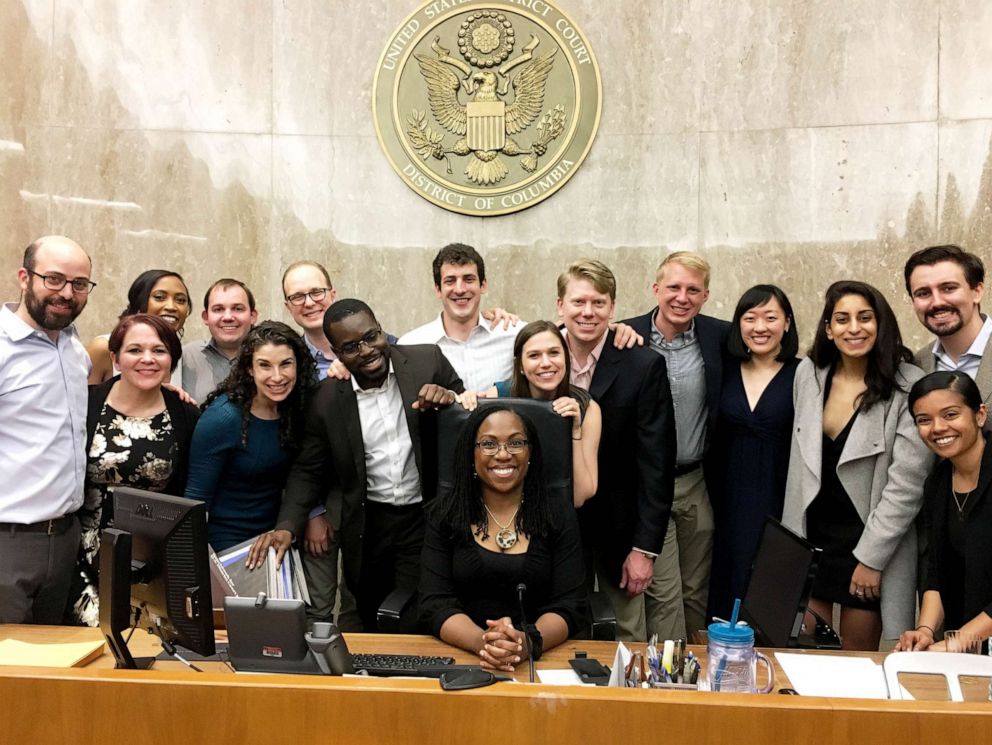
During her appeals court confirmation hearing last year, Republicans questioned Jackson on issues of race; ties to progressive legal groups; her rulings against the Trump administration; the impact of sentencing reductions; and her work as a public defender for Guantanamo detainees.
She could also face questions about her affiliation with Harvard University – both as an alumna and member Board of Overseers – ahead of a major lawsuit challenging the school's use of race-based Affirmative Action in admissions that will be heard by the Supreme Court later this year.
The president's allies on Capitol Hill and among Democratic grassroots groups have begun mobilizing to promote and defend the nominee, gearing up for a media blitz to mark both the historic nature of the nomination and counter expected Republican attacks, some of which have already been racially-charged.
The White House is expected to highlight Jackson's personal story as the embodiment of the American Dream.
"Her Miami roots will afford her valuable perspective on the rights and lives of the people who come before the court," members of the Cuban American Bar Association wrote in a letter to the president this month.
Jackson attended Miami-Dade public schools. Her mother was a public high school principal in the county, while her father was a teacher and later county school board attorney. Her younger brother – her only sibling – served in the military and did tours in combat. Two uncles have been law enforcement officers.
Her husband, Patrick Jackson, is a surgeon in the Washington, D.C., area, where together they have raised two daughters.
"It's a story of someone who's always been very hard working, who has not had things handed to her, who has worked for all the things that she's achieved," Barkow said.




